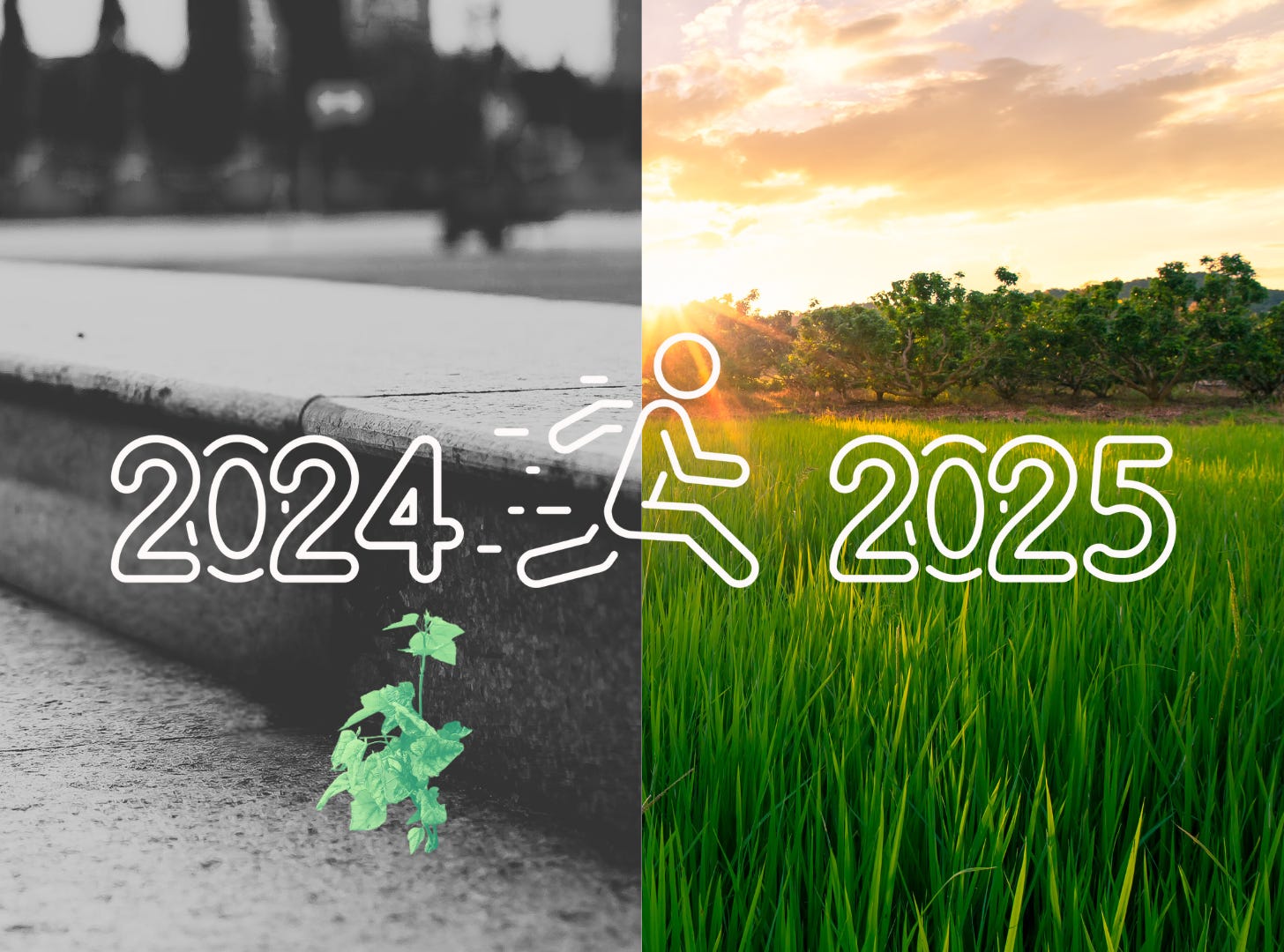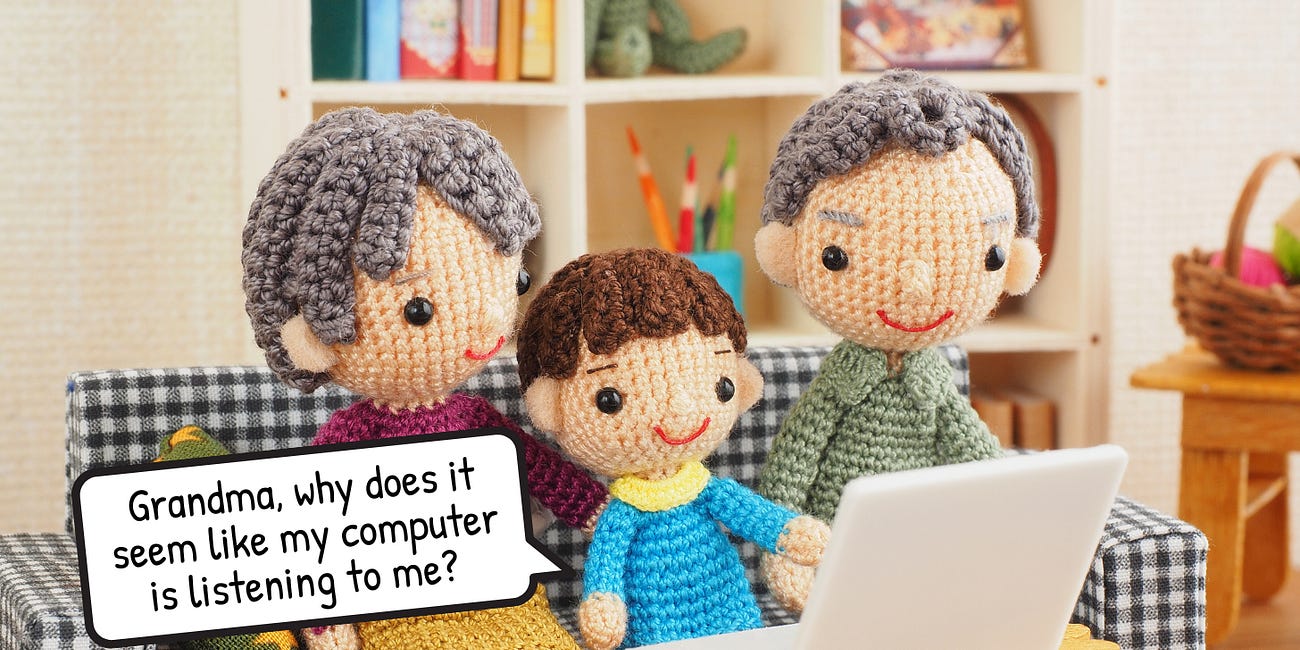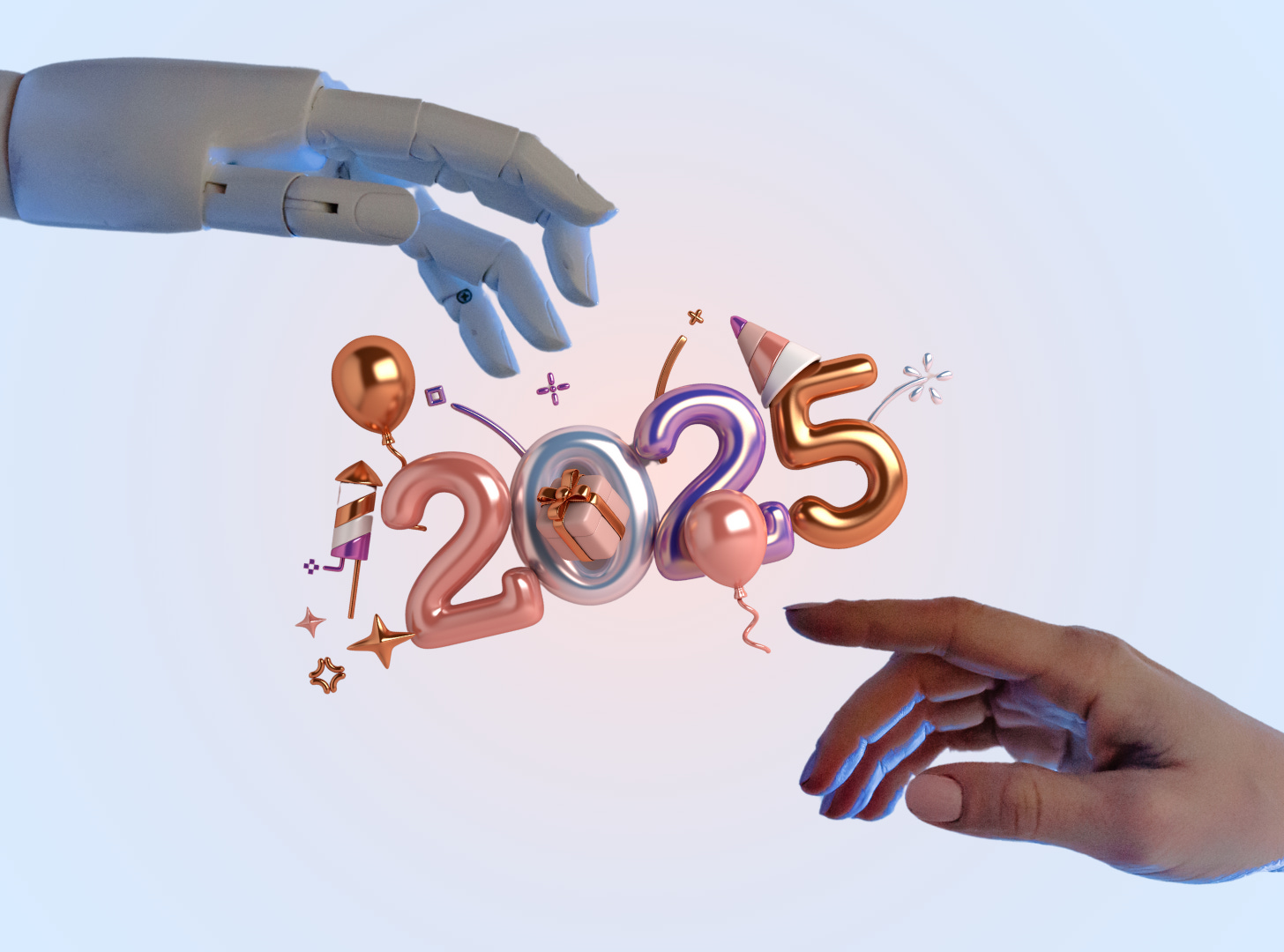2025 AI Predictions
#TIPS4FAMILIES | For such a neat looking number of a year, 2025 may be a hot mess for technology/life integration. Here are a few issues to get you thinking in the weeks ahead.
Until now, the impact of AI and other technology innovation has mostly resembled an aggressive, curious, persistent new plant that looks like a weed to some, and a flower to others, but in all cases has been relatively easy to avoid.
Well, no more. In 2025, it will be everywhere you look. A few thoughts…
What’s Ahead This Year
My Top Five…
1. There will be many more swarms of *solutions* to problems you didn’t even know you had.
No sooner did we hear “teens are using generative AI to write papers” and poof, the billion dollar ‘academic integrity’ industry appeared. And with it, the expected high-stakes drama associated with false cheating accusations and hours spent tweaking essays to sound more colloquial and less ‘robotic.’
“When ChatGPT set the world on fire a year and a half ago, it sparked a feverish search for ways to catch people trying to pass off AI text as their own writing. A host of startups launched to fill the void through AI detection tools, with names including Copyleaks, GPTZero, Originality.AI, and Winston AI. It makes for a tidy business in a landscape full of AI boogeymen.” —Gizmodo
The fact is, if a teen can’t explain, discuss, or defend their written work, then nothing has been learned anyway.
A few additional perspectives:
AI cheating is overwhelming the education system – but teachers shouldn’t despair, The Guardian
To Best Serve Students, Schools Shouldn’t Try to Block Generative AI, or Use Faulty AI Detection Tools, Electronic Frontier Foundation
She was falsely accused of cheating with AI— and she won’t be the last, Rolling Stone
AI Detectors Get It Wrong. Writers Are Being Fired Anyway, Gizmodo
2. Generative AI will lose some of its shine, but AI overall is still gaining strength.
By the time the dotcom bubble burst, we had been introduced to some really cool businesses that we could live without (and we did because a lot of them went out of business). But then just 1–2 years later, we were slowly introduced to many of the products and services that would stick.
The point is, don’t be too distracted if you aren’t using, say, ChatGPT, because AI innovation is edging its way into everything. What’s more critical is to keep your eyes on the bigger shifts around us.
“Less than 17 years after the iPhone, the next leap is already here and promises to be more turbulent and transformative than we can imagine. Picture a society where corporations treat your mind as an extension of their data pipelines, mining your attention directly through your neural activity for profit while selling you back the illusion of control. A society where reality is “enhanced” with the infinite possibility of artificially generated worlds, sensations and experiences.” —Observer
What to expect:
2025 AI Predictions: The Year AI Breaks Everything and Redefines Everything Else, LinkedIn News
3 trends we can expect from AI in 2025, Tom’s Guide
Early Adopters Are Ditching Google Search for AI Chatbots, Bloomberg
3. Our privacy is most at risk right now — with the toughest fight still to come.
Challenges to our privacy from AI resemble, in part, carbon monoxide — invisible and easy to ignore, until it isn’t. The dire nature of this toxicity is not overstated here either — from identify theft, to deepfakes and fraud, the risks are great, especially to our kids.
AI innovation requires data, and much of it comes from us. It’s also going to become scarcer in the years ahead, so companies will find new ways to coerce information from us. We may be okay with the exchange, we may not. It should be something we participate in understanding.
It won’t be easy. If you’ve kept up with the work I’ve been doing with Parent Coalition for Student Privacy and the NYCLU to encourage NYC to rethink its partnership with Talkspace, the fight for privacy has been akin to a game of Whack-a-Mole.
Why? First, data is at a premium and companies won’t give it up so easily. There is also a technological savvy required to understand where data is being extracted, and that can be hard too.
A few additional thoughts on privacy:
Data Privacy Advocates Raise Alarm Over NYC’s Free Teen Teletherapy Program, the 74
The Attention Economy: Power, Profit and Privacy in the Digital Era, Observer
Online privacy and data integrity — a crisis of trust, The Hill
4. More children will become emotionally attached to AI bots.
This is an issue I’ve covered before, and as more startling stories are starting to roll in, its urgency as an issue is clear. Kids are emotionally vulnerable and prone to the types of ups and downs that Chatbots can exploit by *seeming* to be humanlike. The paradigm is new to all of us, so we have to work to understand what is happening.
Additional reading:
The Risk of Building Emotional Ties with Responsive AI, Pace
It’s No Wonder People Are Getting Emotionally Attached to Chatbots, Wired
People are falling in love with — and getting addicted to, Vox
MIT expert warns AI freaks against falling in love with hot chatbots: ‘It doesn’t care about you,’ NY Post
From passwords to medical records,10 things to never say to AI bots, USA Today
5. Leading voices will continue to emerge and provide new perspectives.
If you are willing to listen, the new year will bring to the fore many of the wise voices helping us to navigate the AI space. There is no cramming this issue either, we must take the time to understand and consider what is happening.
Where to look?
Substack is a great place to explore sharp voices and different perspectives that may speak to you individually.
Consider subscribing to Apple News, or setting up a Google News alert for a particular subtopic that interests you, and start to see who is being quoted.
Linkedin increasingly also includes news and expert opinions to explore.
There are no answers, only ideas, and once you start to understand where your interest lies you can hook in to experts.
I’ll leave you with one of my favorite AI philosophers, Shannon Vallor, and her new book, The AI Mirror. Vallor reminds us that AI today is merely holding up a mirror to who we are, and who we have been. It also demands that we focus on our uniquely human qualities and skills.
From a profile on Professor Vallor:
“As we discover what AI can do, we’ll need to focus on leveraging uniquely human traits, too, like context-driven reasoning and moral judgment, and on cultivating our distinctly human capacities. You know, like contemplating a giant bean sculpture and coming up with a powerful metaphor for AI. “We don’t need to ‘defeat’ AI,” she says. “We need to not defeat ourselves.” -Fast Company
I look forward to sharing many more ideas in the months ahead. Happy New Year!









